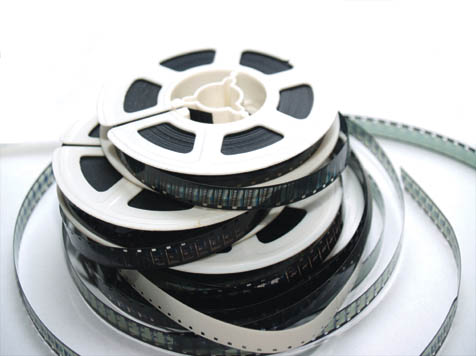Behind the Scenes with SBIFF’s Reviewers, Who Screen Films All Year
Selecting the Fest

I’ve saved numerous film festival-goers from watching a lot of bad movies. Well, not just me-a group of volunteers supervised by the film festival staff individually screen all the films submitted to SBIFF. This is not a trivial task: More than 1,700 films are submitted for consideration. Only a small subset of those films-a little more than 200 this year-make the cut and end up in the festival’s schedule.
Every film submitted to the festival gets watched-at least twice-by two separate screeners and often by someone from the festival staff as well. In a nod that acknowledges different movie-going tastes, the screeners are a diverse group, ranging in age, gender, interest, and day job. In one way or another, though, the members of the group share a passion for film, whether professionally or by hobby or aspiration.
It’s a good thing this group has enthusiasm, as many of us watched 100-plus hours of film between the date of the first submission deadlines and the scoring of the final film. (I personally stopped keeping count at 104 hours.) I rarely watched television shows and didn’t rent movies throughout this process-all my tube time was taken up with screeners.
With each viewing, every film is scored, an important thing to keep in mind for budding filmmakers, and good to remember when it seems as though selecting films for festivals is an arbitrary process. Films are scored on direction, acting, story, and production. Even with scoring in place, the festival’s personality reflects a variance in tastes. For example, I learned that a short film that I had given a less-than-stellar score (as did the other screeners who also viewed the title) was accepted by Sundance.
Personal bias aside, I did watch a lot of bad movies. But that makes the submitted films seem much more dismal than they actually were. All too often, I’d be sitting in my chair with a stack of DVDs, and with each one, there would be a kernel of something beyond the ordinary. The filmmaker would start with an intriguing premise, or be able to talk their Emmy Award-winning friend into appearing in their indie experiment, or the music would create just the right mood, or a camera angle would create a unique view. But then they wouldn’t deliver. Something along the way would fall through: An actor would stiffly read a line, casting decisions didn’t make sense, the dialogue writing was stilted, the characters were all cliches, they were producing a long public service announcement, or they really needed to hire an editor who could help the story move along rather than keep in every scene no matter how plodding. Every time I returned a batch of films to the office, many titles would be accompanied by this commentary: “They had a good idea, but :”
Often I wanted to pick up the phone and call one of the filmmakers or shoot them an email offering them some advice. My scoring sheets were frequently more like critiques, with notes like “great opening scene, and then what were you thinking casting her in that role?” or “hire some new camera operators,” or “30 minutes is too long for a short and too short for a feature,” or “find a new editor,” or “give it a different ending,” or “this is not reality TV.” Of course, calling filmmakers was not in our job description, and it would break all of our confidentiality agreements.
Reality TV, YouTube, and the easy availability of filmmaking equipment and editing software have simultaneously made filmmaking more accessible while creating such ease that people may be tempted to choose expediency over craft. Yet it seems experimentation is valuable in the world of filmmaking. Just as athletes need to practice not hitting the ball until they launch it out of the ballpark, filmmakers may need these trials-even the process of not quite getting it right gets them closer to that magic synergy that happens in filmmaking, when it’s not at all formulaic and the pieces do just come together.
This being said, if you asked me what you shouldn’t miss in the festival, I wouldn’t really know what to tell you. Most of the films I watched ended up receiving a “Thank you, but :” sort of letter. They weren’t all duds, though. There were gems in my submission pile and some films I screened are on the schedule. And as the festival approaches, I’m fortunately not jaded, since there are a lot of films to see. Better yet, I know they’ve passed someone’s muster. Best of all, I don’t have to score them. And reflecting on this at the end of the whole process, would I plow my way through films again next year? Absolutely.



